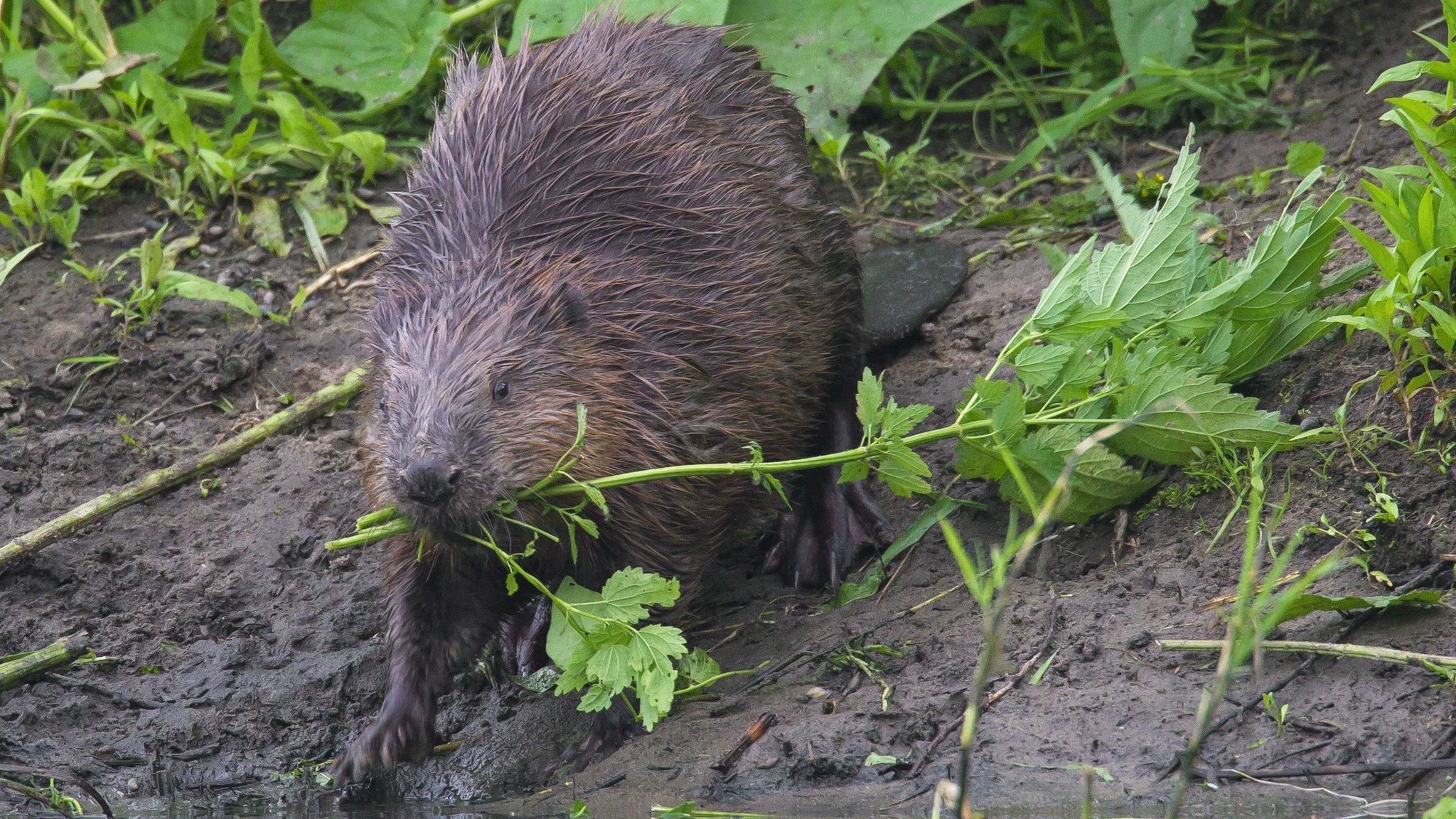River Avon wild beaver family sighting 'extremely significant'
- Published
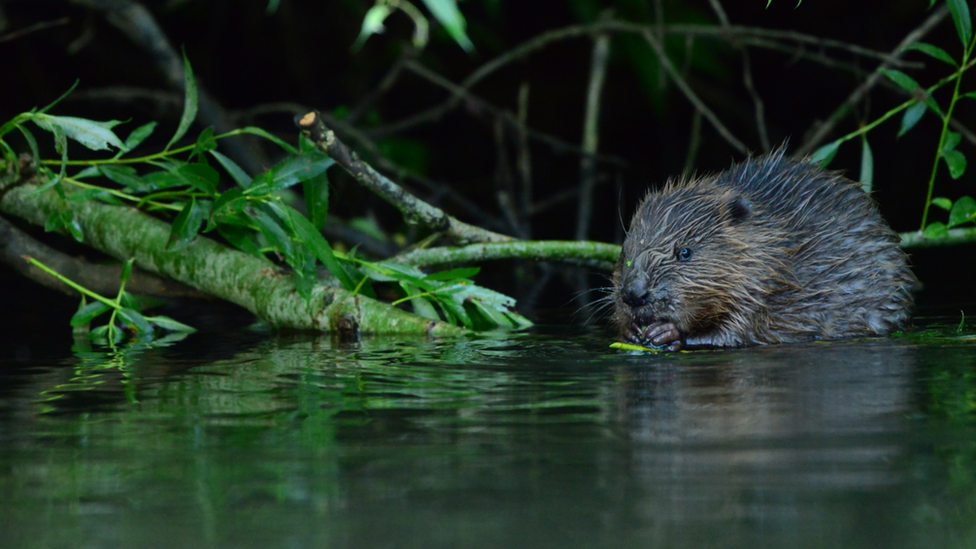
It's the first time wild beavers have been seen living in the area without human intervention for more than 400 years
A new sighting of three generations of beavers in a single location has been described as "extremely significant" to the future of the species.
The family, which included three kits, was spotted within the River Avon catchment area.
It is the first time in 400 years that the endangered animals have been seen to establish themselves without help from humans.
The Avon Wildlife Trust says it is "delighted" the beavers have returned.
Since the early 2000s, beavers have been reintroduced across the UK, through conservation trials including ones at Greathrough Brook, external in the Forest of Dean and on the River Otter in Devon.
Known for their dam-making skills, creating natural flood defences, a healthy beaver population is seen as important to reduce the effects of flooding and improve biodiversity.
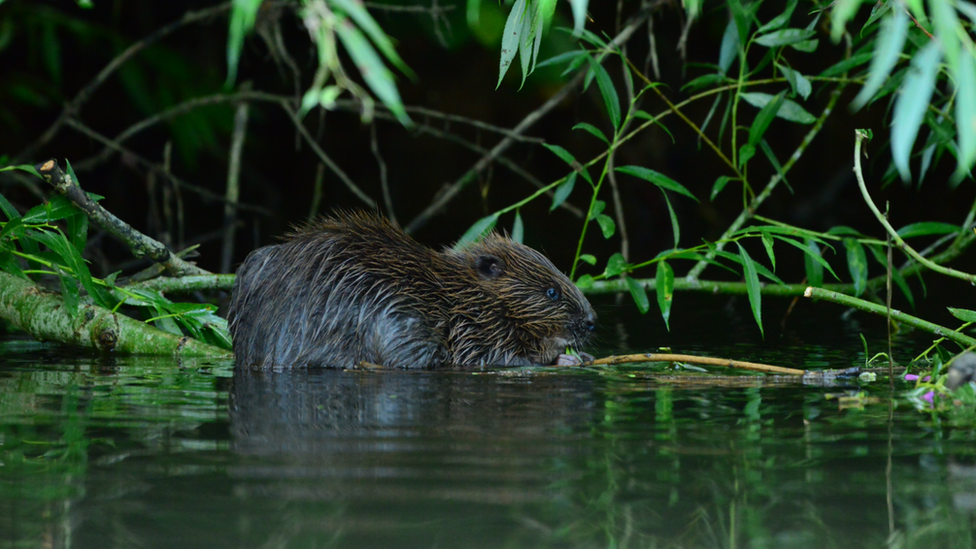
It is hoped the animals will help prevent any flooding in the area by improving biodiversity and building dams and ponds
Amy Coulthard, director of nature's recovery at Avon Wildlife Trust, said: "Beavers are a keystone species and they have an extraordinary ability to change habitats to suit their needs while creating ecosystems for other species to thrive.
"The presence of this beaver population will support other wildlife and help us to tackle the ecological emergency."
The discovery follows a five-year scientific study conducted by the Wildlife Trust which shows that the presence of beavers has a wide range of positive effects on biodiversity, nature and people.
The research found that active beavers improve water quality, reduce flood risk and increase biodiversity.
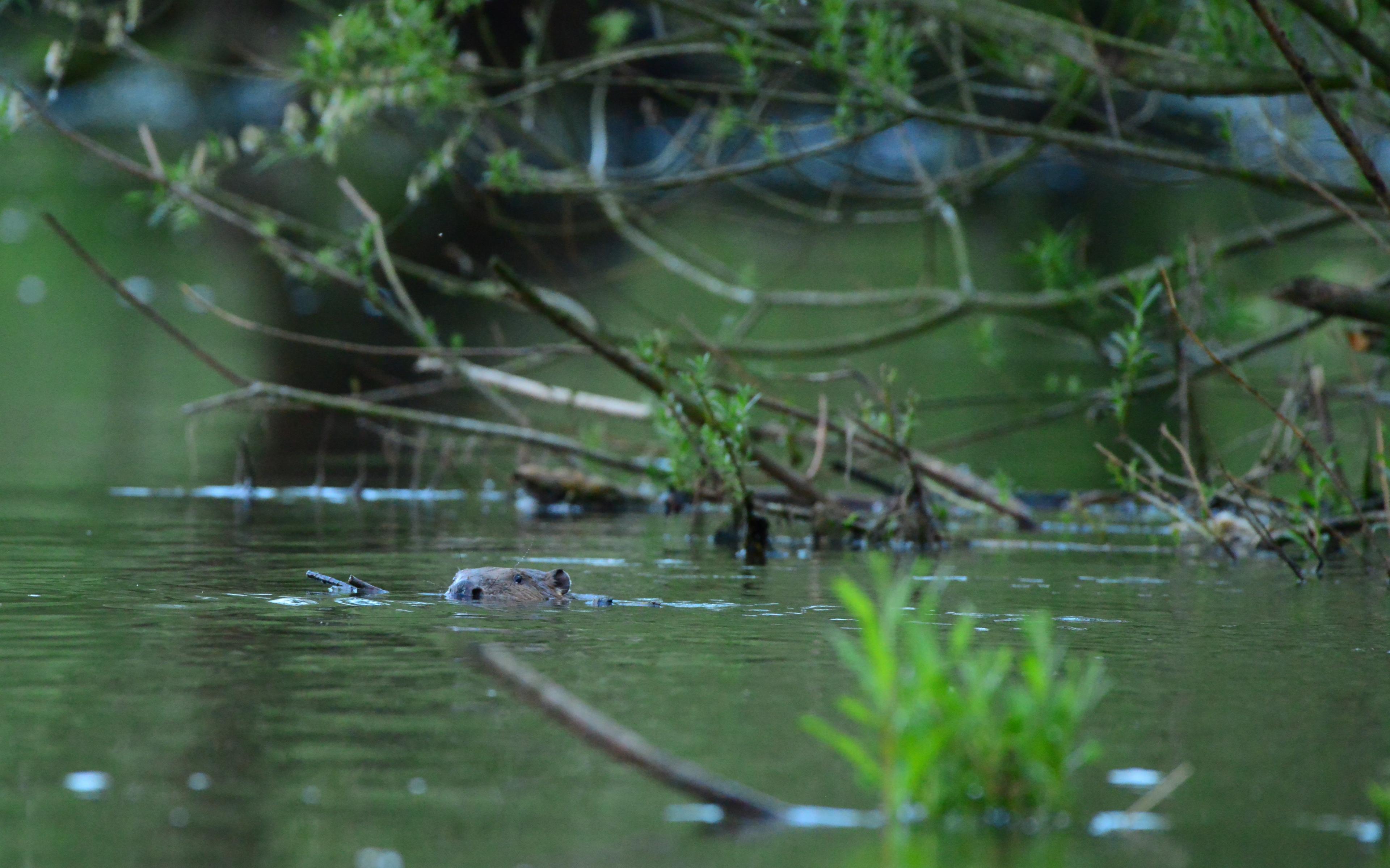
The beavers exact location remains undisclosed to allow them to continue to thrive in their habitat
A new Beaver Management Group, consisting of conservation bodies as well as local community groups, has been appointed to monitor the new population and work with landowners. Its aim is to maximise the benefits beavers can provide in the area as well as manage their impact.

Follow BBC West on Facebook, external, Twitter, external and Instagram, external. Send your story ideas to: bristol@bbc.co.uk , external
Related topics
- Published25 August 2021
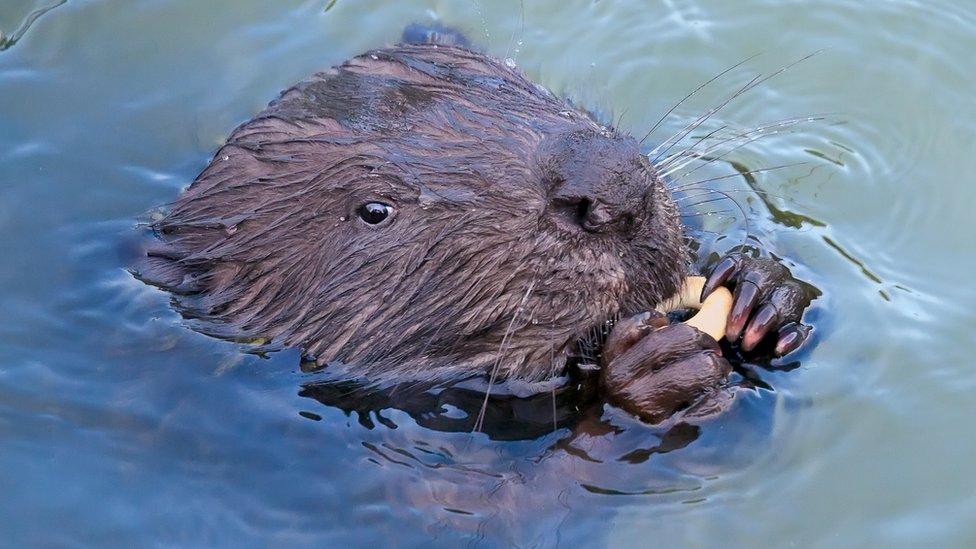
- Published25 August 2021

- Published24 February 2021
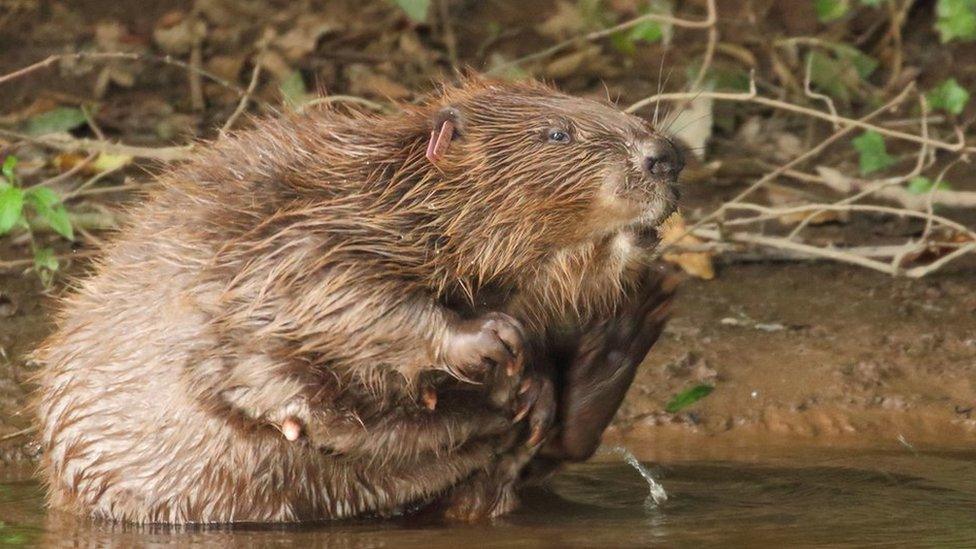
- Published3 June 2017
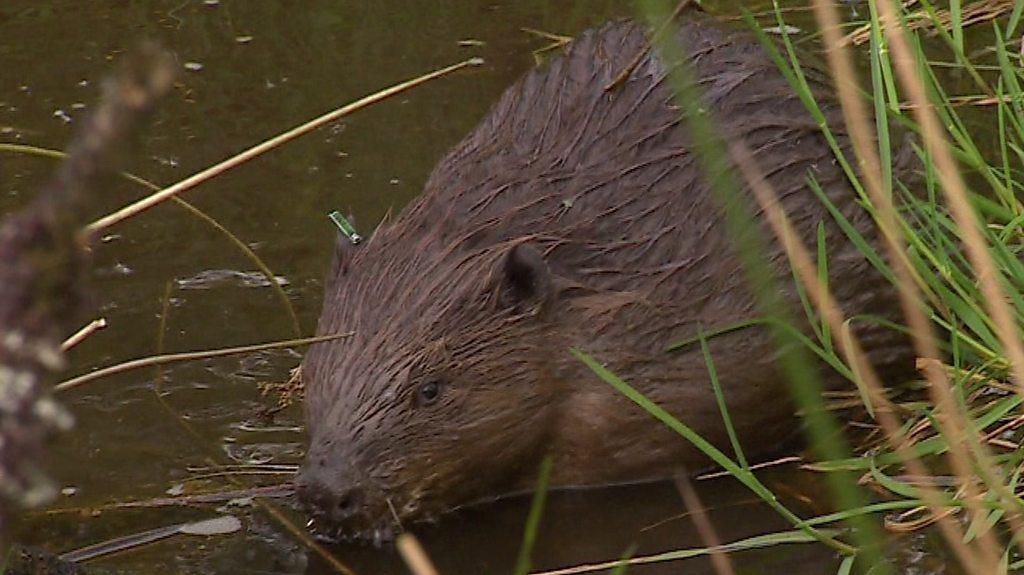
- Published20 November 2019
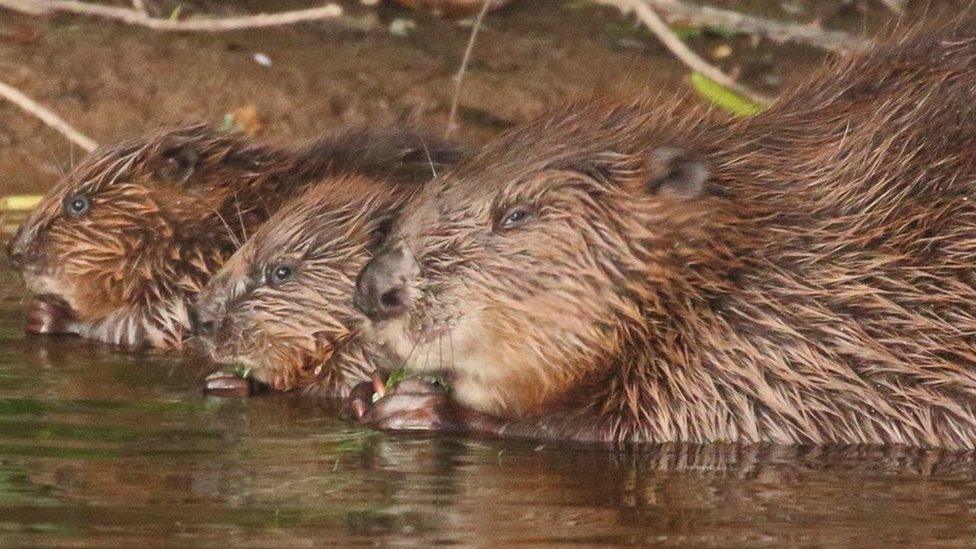
- Published18 February 2019
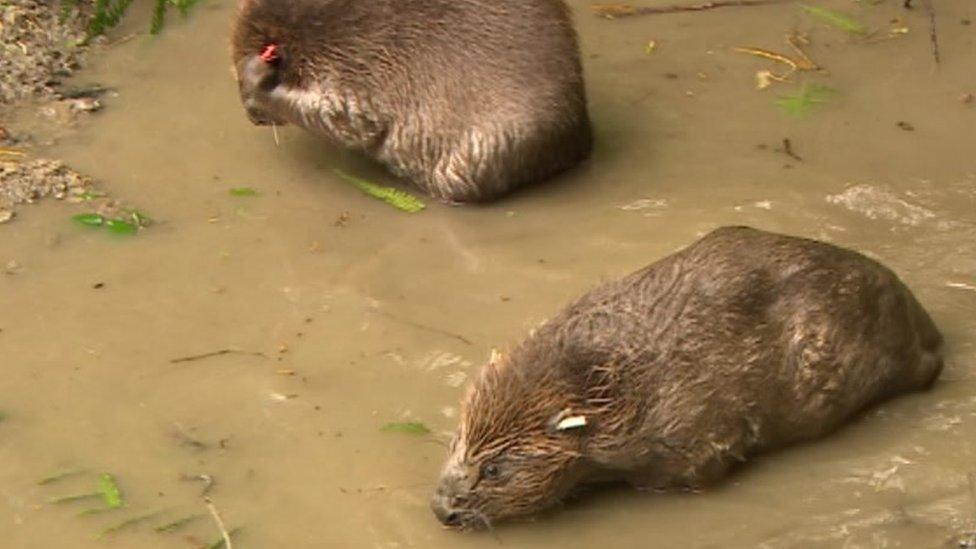
- Published1 May 2019
